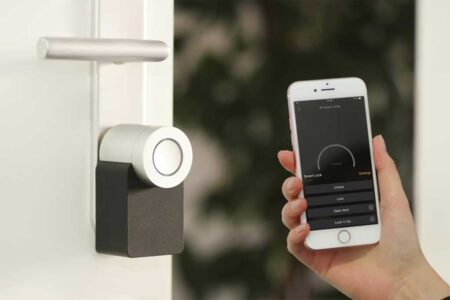When taking out auto insurance, there are a number of add-ons you can apply for. These will each increase your overall monthly premiums, but could give you additional protection. Are they worth paying extra for? Or are you better off skipping them? This post takes a look at each of them.
Breakdown cover
If you experience a breakdown, having breakdown cover could help to pay for roadside assistance and vehicle recovery. This is one of the most popular and beneficial insurance extras – it can be particularly worthwhile if you have an older vehicle and go on many longer journeys. Just be wary of the fact that this cover is often location restricted, and may not cover breakdowns within a 1 mile radius of your home.
Personal accident cover
Personal accident cover can help to provide compensation for any medical treatment you may need in the event of a serious road accident. It may also cover loss of income during recovery and even funeral costs if someone dies. This typically doesn’t cost much to add onto your insurance cover, however may not be worthwhile if you’re already covered by other types of insurance like health insurance, income interruption insurance or life insurance.
Legal cover
There may be incidents where you want to file a lawsuit, or where you may need to hire legal defense. For example, if you were injured in an accident that wasn’t your fault, you might be able to use a legal professional like attorney Adam Kutner to file a personal injury claim. Legal cover can help to pay for legal fees – whether or not you win your case. This add-on is typically inexpensive and one of the more popular insurance extras.
No claims discount protection
Many insurers will provide a no claims discount if you go a year without making a claim. Having no claims discount protection (sometimes called NCD protection) in place can shield your no claims bonus and reduce any other insurance increases even if you make a claim. This can be worthwhile protection if you have years of no claims and low rates – you never know when you’re going to have to make a claim.
Courtesy car cover
Courtesy car cover can help to provide a temporary replacement vehicle when your car is being repaired following an accident. Without this cover, you’ll have to pay to hire a car yourself. This can be useful to have if you rely heavily on having a car to get to work or drop kids off at school. However, if you’re able to go extended periods without your car or are insured on another vehicle, it may not be a necessary extra.
Windscreen cover
Windscreens can get damaged in all kinds of ways. Adding windscreen cover to your insurance policy can provide compensation to pay for any repairs if your windscreen gets cracked or chipped. Those who regularly take long drives – particularly on country backroads with more rigged road conditions – are more likely to experience windscreen damage, and may want to consider this add-on. It’s usually quite a cheap extra.
Key replacement cover
Losing your car key can be a huge inconvenience. Car keys can cost anywhere from $50 to $500 depending on whether it’s a traditional key, transponder key or smart key. Key replacement cover can pay for a new key. Is having this cover worthwhile? If you’re quite responsible and you’ve never lost your car key before, it might not be worth paying extra for this add-on. However, if you’ve lost keys in the past and your car uses a transponder key, paying for this cover may be a good idea.
Uninsured driver protection
If you’re hit by an uninsured driver, you won’t be able to claim through your insurer. However, uninsured driver protection can give you the opportunity to still claim compensation in the event that this does happen. In many cases, your no claims bonus will also be protected. Worth it? This add-on can provide peace of mind, but in some cases can increase rates by as much as 5% or 10%. You never know if you’re going to be hit by an uninsured driver, however it might be worth taking the risk if you don’t use your car that often.
Excess cover
Many drivers agree to pay excess or a deductible if they make a claim – which involves paying a certain amount towards repairs out of one’s own pocket. Offering to pay higher excess can lower your insurance rates. However, if your excess is high, you could end up paying huge amounts of money every time you make a claim. Excess cover can help you to get a refund on your excess when you make a claim. It’s usually not taken out through your insurer, but with another third-party insurance company. It can be quite cheap, and might be worth looking into if your excess is high.
Contents cover
The contents of your car is not covered if you have an accident or if your car is stolen. This means you’ll have to dig into your own pockets to replace any accessories or tools that were in your vehicle. Contents cover is most worthwhile if you’re insuring a business vehicle that you keep your tools in. If you don’t keep anything of value in your car, this add-on is likely to be unnecessary.
Misfuelling cover
Accidentally put the wrong fuel in your vehicle? Misfuelling cover can pay to get your vehicle repaired. For many drivers, this is not worthwhile. However, if you drive two vehicles that take different types of fuel and you’re prone to forgetfulness, you might want to consider this add-on just in case.
International driving cover
Insurance policies typically don’t cover driving abroad. International driving cover can provide protection in other countries. For those that have plans to cross the border in their vehicle or take their car overseas, this might be worth having. However, you’ll likely want to avoid this add-on if you never drive abroad or tend to just use a hire car (in which case, you’ll take out insurance separately).






